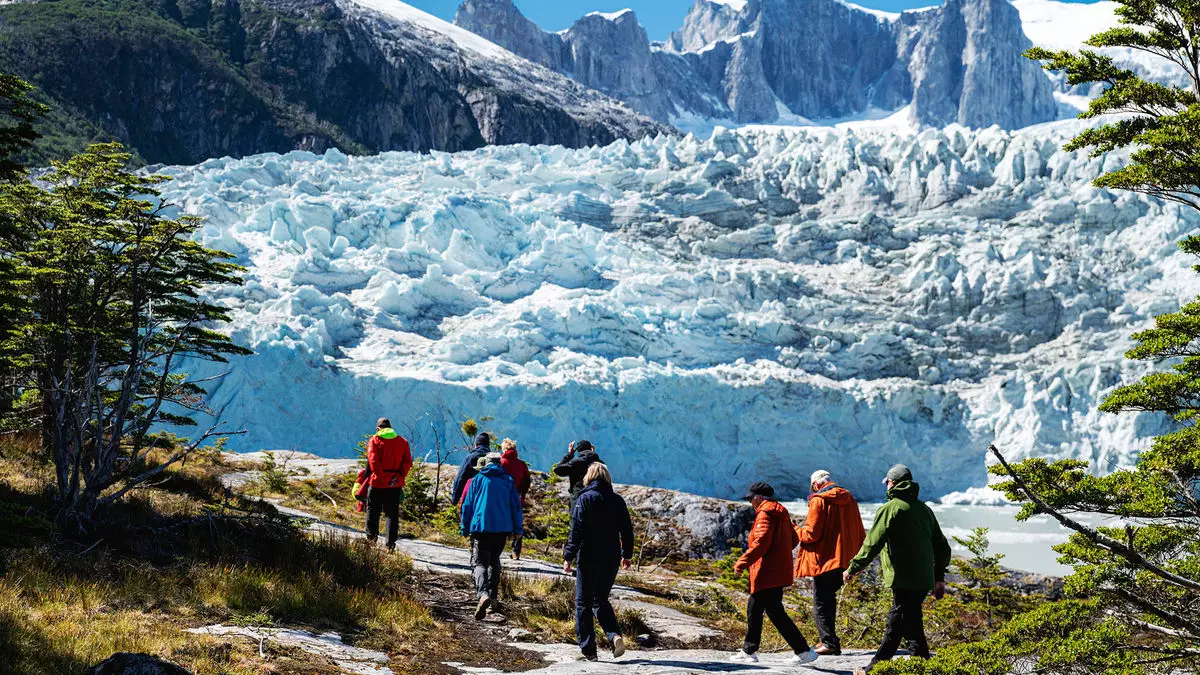In an era dominated by constant connectivity and digital overload, the notion of deliberately stepping into silence holds profound significance. The experience at the edge of the Earth — witnessing glaciers calving, hearing the cracking ice, and standing in the vast solitude of Tierra del Fuego — exemplifies how true restoration stems from disconnecting. It is not merely about observing unspoiled landscapes; it is about immersing oneself in them fully, allowing silence to become a conduit for introspection and connection with our planet’s raw beauty.
This quietude is more than an aesthetic feature—it’s a vital act of mindfulness, offering a rare space where the mind can breathe freely. When overwhelmed by screens and schedules, human beings tend to forget the restorative power of nature’s simplest elements: the sound of cracking ice, the sight of nesting penguins, the scent of untainted air. These are gestures of the Earth that silently remind us of our fragile place within the larger ecosystem. A ‘Patagonia moment,’ therefore, is more than a photo op; it is an invitation to relinquish control and surrender to the rhythms of nature, which has an uncanny ability to heal the human psyche.
Venture Into Remote Territories: The Allure of Unexplored Shores
Few experiences rival the thrill of journeying to remote, scarcely touched landscapes. Patagonia’s fjords, glaciers, and towering cliffs have remained largely inaccessible—until modern expedition ships opened a window into these wildernesses. Unlike conventional cruises, small ship expeditions provide intimate access to places where mass tourism cannot reach. Zodiacs ferry travelers close to thundering glaciers, nesting seabirds, and sea lions along steep, rugged coastlines.
What makes this journey particularly compelling is the sense of discovery. Seeing the infamous Cape Horn or witnessing a glacier calve into icy waters reveals a dynamic, ever-changing world that commands undivided attention. These journeys are more than sightseeing; they are a confrontation with the Earth’s primal forces. Traveling through these narrow fjords, far from the bustle of cities and highways, rekindles a primal curiosity and awakens an understanding of our relationship with nature’s extremes.
The adventure also emphasizes the importance of preservation. The untouched landscapes serve as poignant reminders of what is at risk in a warming world. By traveling in small groups and on vessels designed for minimal environmental impact, explorers participate in a voyage of respect, realizing that their presence, while awe-inspiring, demands a conscious effort to protect these fragile ecosystems.
Slow Travel as a Catalyst for Personal Renewal
Journeying into remote wilderness is as much about internal transformation as it is about external sights. The slow pace of expedition cruising encourages travelers to shed their hurried lifestyles, offering a rare opportunity for mindfulness and genuine engagement. Without the distractions of cellphones and WiFi, visitors are invited to focus on the present moment—observing seabirds, listening to cracking ice, and sharing stories with new acquaintances from around the world.
This intentional disconnection fosters a type of renewal that is difficult to achieve in everyday life. The quiet moments — whether watching whales breach in the distance, journaling in a cozy cabin, or simply inhaling the crisp, unpolluted air — rekindle a sense of wonder. Many pilgrims on such journeys report feeling recharged, more aligned with their surroundings, and with a renewed appreciation for the planet’s intricate beauty.
Furthermore, these voyages serve as a potent reminder that authentic travel involves presence and patience. The unpredictable weather and limited schedules force visitors to adapt, to let go of rigid plans, and to accept the ephemeral nature of these experiences. In doing so, travelers often find a profound sense of peace and clarity, uncovering an inner resilience previously dormant within their busy routines.
The Power of Small-Ship Expeditions in Cultivating Respect and Awe
Small-ship expeditions are redefining the way we engage with nature’s most majestic spectacles. Limited to fewer passengers, these vessels prioritize intimacy and sustainability. Unlike giant cruise ships that dominate the horizon, these intimate vessels glide quietly among glaciers and through fjords, reducing ecological disturbance and fostering closer interactions with wildlife.
Each Zodiac excursion becomes a mini-lesson in biology, geology, and history. Guides, often experts in their fields, share stories of the explorers who first charted these waters, connecting passengers to centuries of human curiosity and curiosity’s consequences. It’s a collective learning experience rooted in respect, humility, and responsibility.
Traveling alongside like-minded adventurers from diverse nationalities emphasizes the universal appeal of wild landscapes. The camaraderie that develops in such shared moments—climbing lighthouse stairs at Cape Horn, cheering whales from the deck, or sharing a drink in the Darwin Lounge—cements bonds rooted in awe and gratitude. It is these micro-moments of human connection amid nature’s grandeur that underscore the voyage’s transformative potential.
Talking about the unpredictable nature of weather and the crew’s meticulous planning to maximize time in these fleeting windows of opportunity underscores the vulnerability and resilience embedded in expedition travel. It is a humbling reminder that nature’s majesty is unpredictable, and our role is simply to observe, respect, and learn from it.
—
Ultimately, voyages into remote wilderness are more than travel experiences; they are catalysts for personal and planetary awakening. They challenge the notion that tourism is solely consumption, instead positioning it as an act of reverence and awareness. In this slow, deliberate form of exploration, travelers are not visitors but witnesses—bearing witness to Earth’s enduring, majestic power and silently vowing to protect it for future generations.


Leave a Reply